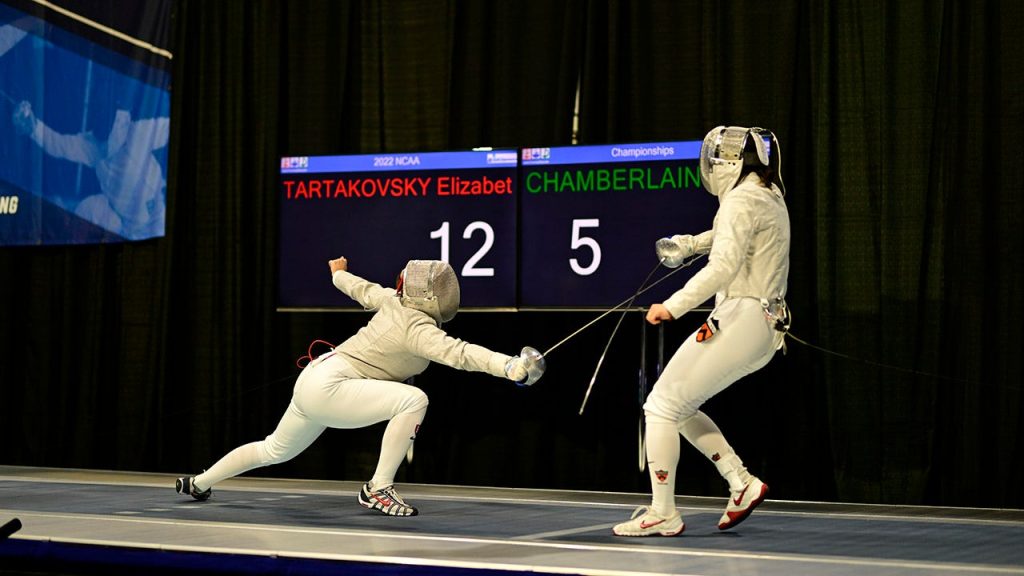The 2020 Summer Games in Tokyo brought a new focus to mental health in the world of sports, with four-time Olympic gold medalist Simone Biles leading the charge in speaking openly about the challenges athletes face. American fencer Elizabeth Tartakovsky, who will be representing Team USA for the first time in Paris in the upcoming summer games, also highlighted the importance of openly discussing mental health. Tartakovsky shared her own struggles with the pressures and expectations of her sport, emphasizing the need for resilience and the importance of seeking support from a sports psychologist to navigate the emotional and mental challenges athletes face.
Tartakovsky comes from a family of fencing royalty, with her great uncle being famed Olympic fencing coach Yury Gelman. Watching him coach the men’s Sabre team to a silver medal at the 2008 Summer Olympics inspired Tartakovsky to pursue the sport. Despite achieving success at a young age, Tartakovsky faced added difficulties in a sport that requires mental focus and quick thinking. She emphasized the importance of emotional and mental preparation, as well as learning how to recover from losses and rough patches in her fencing career.
As the 2022 NCAA Women’s Sabre national champion, Tartakovsky will be making her Olympic debut at the 2024 Summer Games in Paris. While the ultimate goal is always gold, she emphasizes that she does not want her experience to be solely defined by the result. Tartakovsky recognizes that success in sports is not solely determined by who trains the hardest or who is the most athletic, but also by mental dominance and the ability to perform on the day of competition. She appreciates the visibility that mental health in sports has gained, as she has personally gone on a journey of learning about herself and how to navigate the mental challenges of her sport.
Tartakovsky’s journey reflects the broader shift in the conversation around mental health in athletics, with more athletes now speaking openly about their struggles. The increased visibility of mental health in sports allows for a greater understanding of the pressures and challenges athletes face, as well as the importance of seeking support and developing resilience. Tartakovsky’s story serves as an example of the importance of mental preparation, emotional resilience, and seeking the necessary support to navigate the mental challenges that come with competing at the highest levels of sport.
As she prepares for her Olympic debut in Paris, Tartakovsky maintains a focus on mental dominance and the ability to perform under pressure. While the goal is always to win, she recognizes that success in sports is unpredictable and dependent on various factors. By sharing her own journey and experiences with mental health in sports, Tartakovsky adds to the growing conversation around the importance of mental well-being in athletics. Her story highlights the resilience and strength required to succeed in a sport that demands both physical and mental toughness, inspiring others to prioritize their mental health in pursuit of their athletic goals.


